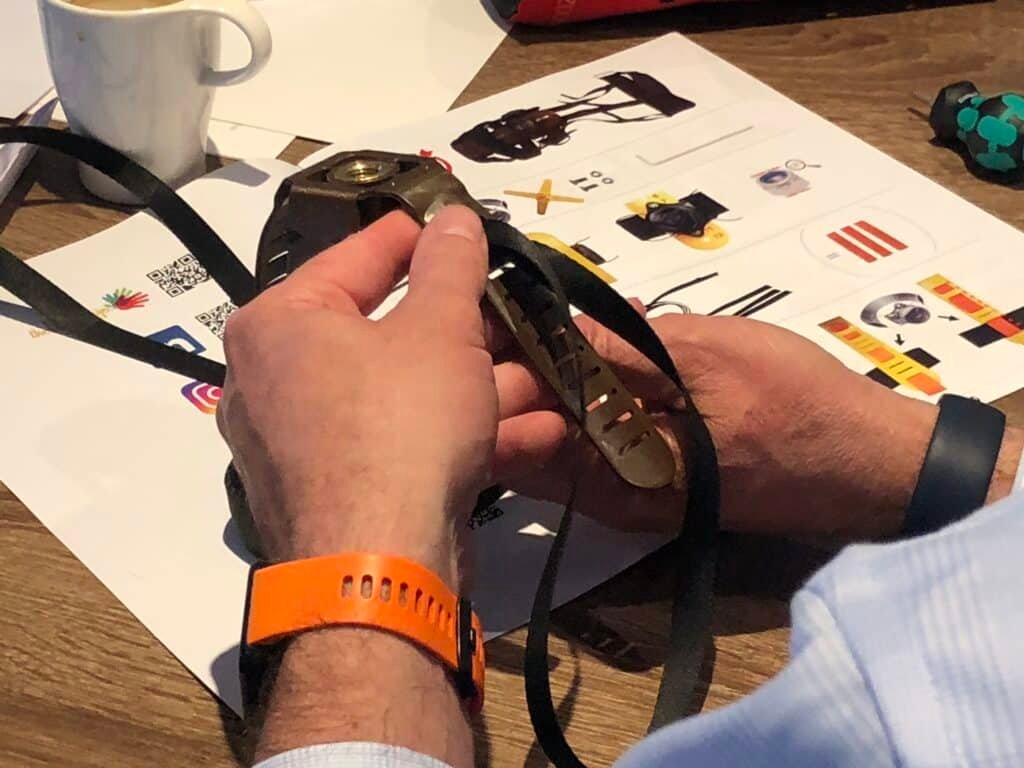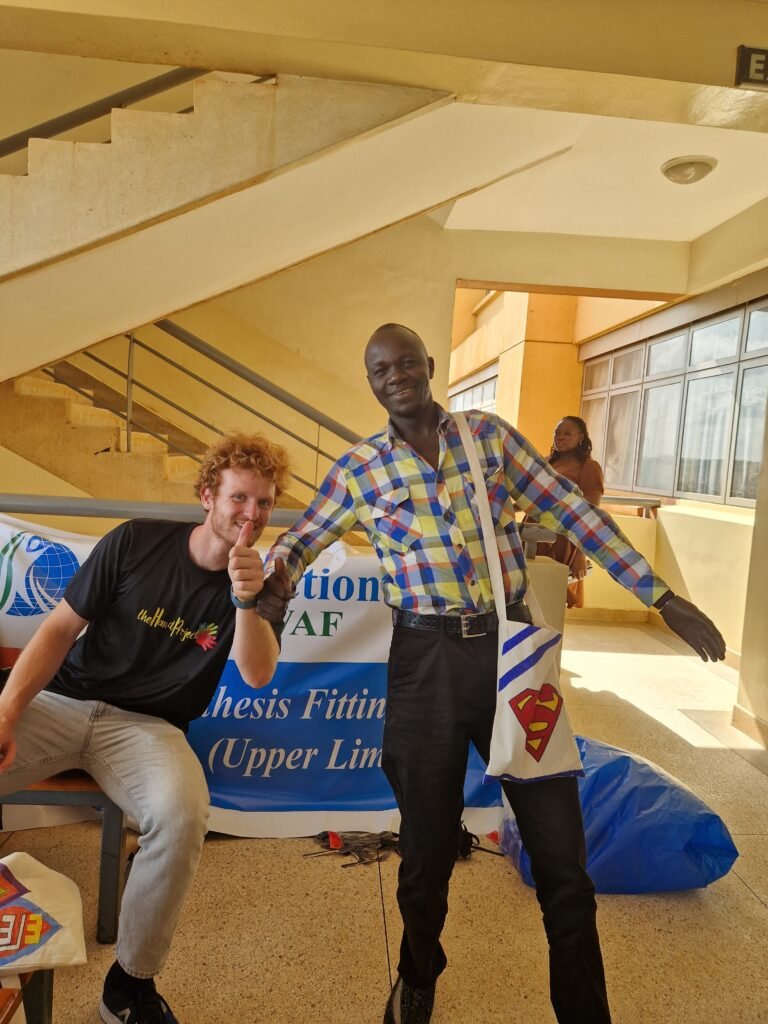
CSR (Corporate Social Responsibility) teambuilding
CSR (Corporate Social Responsibility) teambuilding is reshaping the landscape of corporate team development. It goes beyond traditional team building by integrating social responsibility into the core of team activities. This innovative approach not only fosters team cohesion but also aligns team efforts with broader societal goals. In this blog, we’ll explore the significance of CSR teambuilding and spotlight The Hand Project, an exemplary model that uniquely blends team development with impactful social contribution. Discover why The Hand Project is not just an activity but a transformative experience that resonates deeply with corporate teams.
Table of Contents:
- Introduction to CSR Teambuilding
- The Hand Project: A Benchmark in CSR Teambuilding
- Why CSR Teambuilding is Crucial for Modern Businesses
- The Benefits of Integrating CSR into Team Development
- Case Studies: Successful CSR Teambuilding Initiatives
- Tailoring CSR Activities to Your Team’s Needs
- Measuring the Impact of CSR Teambuilding on Teams and Society
- The Hand Project: A Unique Opportunity for Meaningful Engagement
- Conclusion: Elevating Team Building to a New Level
- Call to Action: Join The Hand Project for Transformative Team Development
The Hand Project: A Benchmark in CSR Teambuilding: In the realm of CSR teambuilding, The Hand Project sets a high standard. It exemplifies how corporate teams can engage in meaningful activities that not only develop their teamwork and communication skills but also make a tangible difference in the world. Learn more about their workshops here
- A Unique Blend of Team Development and Social Impact: The Hand Project involves teams in assembling prosthetic hands, which are then donated to individuals in need. This activity seamlessly combines skill-building with a significant humanitarian effort, offering a deeply enriching experience that goes beyond conventional team building.
- Fostering Team Cohesion and Empathy: Through this collaborative effort, team members develop a stronger bond with each other. They learn to communicate effectively, work in unison, and most importantly, develop empathy – not just towards the recipients of the prosthetic hands but also within their team.
- Aligning with Corporate Values: For companies committed to CSR, The Hand Project offers an ideal opportunity to align team building with corporate social responsibility goals. It demonstrates a company’s dedication to social causes and provides a platform for employees to contribute in a meaningful way.

Why CSR Teambuilding is Crucial for Modern Businesses
The corporate world is increasingly recognizing the value of integrating social responsibility into team development strategies.
- Enhancing Corporate Reputation: CSR teambuilding initiatives like The Hand Project can significantly boost a company’s image and brand value, showcasing a commitment to societal welfare.
- Attracting and Retaining Talent: Employees, especially millennials and Gen Z, are increasingly looking to work for companies that prioritize social responsibility. Engaging in CSR teambuilding can be a key factor in attracting and retaining such talent.
- Building a Culture of Empathy and Collaboration: CSR activities encourage a corporate culture where empathy, collaboration, and social awareness are valued, leading to a more harmonious and productive workplace.
The Benefits of Integrating CSR into Team Development
Integrating Corporate Social Responsibility into team building activities brings multifaceted benefits, strengthening teams while positively impacting the community and environment.
- Enhanced Team Motivation and Morale: Engaging in CSR activities can significantly boost team morale. When team members feel that their efforts contribute to a greater cause, it enhances their sense of purpose and satisfaction at work.
- Improved Interpersonal Relations and Communication: CSR teambuilding activities often place team members in new or unfamiliar situations, requiring them to communicate and collaborate in different ways. This can lead to improved relationships and better communication skills within the team.
- Developing a Broader Skill Set: Beyond the usual team building skills like leadership and problem-solving, CSR activities can foster a range of additional competencies, including project management, creativity, and strategic planning.
Case Studies: Successful CSR Teambuilding Initiatives
Real-world examples can offer valuable insights into the successful integration of CSR in team building. One such example is The Hand Project, which has not only enhanced team cohesion but also delivered tangible societal benefits. See “Maximising Team Cohesion with Innovative CSR Teambuilding Activities” for more information.
- The Hand Project in Action: Through The Hand Project events, teams have successfully developed key skills while contributing to the well-being of individuals in need. The project illustrates how CSR initiatives can be both enriching for the team and beneficial for the community.
- Other Successful CSR Initiatives: Many companies have found success in various CSR teambuilding activities, ranging from environmental conservation projects to community development programs. These initiatives show how teams can positively impact society while growing stronger and more cohesive. For more information see: “The Impact of Charity Teambuilding on Corporate Culture”

Tailoring CSR Activities to Your Team’s Needs
Adapting CSR teambuilding activities to suit the specific needs and interests of your team can maximize their effectiveness.
- Assessing Team Preferences: Understanding your team’s preferences and strengths is key to selecting the right CSR activities. This could involve a mix of hands-on projects, educational workshops, or community outreach programs.
- Incorporating Varied Activities: To cater to a diverse workforce, consider a range of CSR activities that address different aspects of social responsibility and team development.
- Feedback and Continuous Improvement: Gathering feedback post-activities and continuously refining your approach ensures that CSR teambuilding remains relevant and impactful for your team.
Measuring the Impact of CSR Teambuilding on Teams and Society
The true value of CSR teambuilding lies not just in immediate team benefits, but also in its long-term impact on both the team and the wider society.
- Long-term Team Benefits: Effective CSR teambuilding initiatives, like The Hand Project, lead to sustained improvements in team dynamics. Teams often report increased trust, better communication, and a stronger sense of unity long after the activity has concluded.
- Societal Impact: Beyond team development, CSR activities have the potential to make significant contributions to societal welfare. Whether it’s through environmental conservation efforts, community service, or humanitarian projects, CSR teambuilding can leave a lasting positive imprint on society.
Implementing Effective CSR Teambuilding Strategies
To harness the full potential of CSR teambuilding, it’s essential to implement these strategies thoughtfully.
- Aligning with Corporate Goals: Choose CSR activities that align with your company’s values and goals. This ensures that the activities resonate with team members and reinforce the company’s commitment to social responsibility.
- Involving Employees in Decision Making: Engage employees in the selection of CSR activities. This inclusion can increase commitment and enthusiasm for the project.
- Building Partnerships: Collaborating with NGOs or community organizations can enhance the effectiveness of CSR teambuilding activities. These partnerships can provide valuable expertise and ensure that efforts have a meaningful impact.
Conclusion: Elevating Team Building to a New Level
CSR team building represents a paradigm shift in how corporations approach team development. By intertwining team building with social responsibility initiatives, companies can achieve a dual purpose: fostering a more cohesive, motivated team and positively impacting society. The Hand Project exemplifies this new approach, offering a unique and meaningful experience that goes beyond conventional team building. It demonstrates how companies can effectively blend personal development with societal contribution, creating a win-win scenario for both the team and the wider community.
Join The Hand Project for Transformative Team Development
Are you ready to take your team building to the next level? The Hand Project offers a unique opportunity to engage in meaningful team development while making a real difference in the world. Discover the transformative power of CSR team building with The Hand Project. Visit our Event Page for more information and to book your team’s participation. Let’s build a stronger team and a better world together. Contact us here.
Frequently Asked Questions (FAQs)
Q1: What is CSR Teambuilding and Why is it Important? A1: CSR (Corporate Social Responsibility) Teambuilding is a strategic approach where team development activities are integrated with social responsibility initiatives. It’s important as it not only enhances team dynamics but also positively impacts society, aligning business practices with community and environmental well-being.
Q2: How Does CSR Teambuilding Benefit Corporate Teams? A2: CSR teambuilding activities benefit corporate teams by fostering stronger collaboration, enhancing communication, and building empathy among team members. It also boosts team morale and motivation by involving them in meaningful and purpose-driven tasks.
Q3: Can CSR Teambuilding Improve Company Culture and Employee Engagement? A3: Absolutely. CSR teambuilding activities can significantly improve company culture by embedding values of social responsibility and empathy. It also increases employee engagement, as team members feel more connected to their company’s mission and values.
Q4: What Makes The Hand Project a Unique CSR Teambuilding Activity? A4: The Hand Project is unique in its approach to CSR teambuilding. It combines the development of practical teamwork skills with the impactful act of building prosthetic hands for those in need. This not only enriches team skills but also offers a profound experience that resonates with corporate values of social responsibility. [Link to: Event Page]
Q5: How Can Businesses Implement Effective CSR Teambuilding Strategies? A5: Businesses can implement effective CSR teambuilding by identifying activities that align with their corporate values and goals, ensuring inclusivity, and seeking employee input. Partnering with organizations like The Hand Project can provide meaningful and impactful CSR teambuilding experiences. [Link to: Contact Page]
Q6: What Are the Long-Term Impacts of CSR Teambuilding on Organizational Success? A6: The long-term impacts of CSR teambuilding on organizational success include improved team cohesion, a stronger alignment with corporate ethics and values, and enhanced company reputation. These activities also contribute to higher employee retention rates, as teams feel more connected and engaged with their work and the company’s social mission.
Q7: How Does CSR Teambuilding Support Community Development and Social Welfare? A7: CSR teambuilding supports community development and social welfare by directly involving corporate teams in activities that benefit society. Initiatives like The Hand Project contribute to societal welfare by providing valuable resources or services, in this case, prosthetic hands, to those in need, thereby fostering a sense of community and social responsibility.
Q8: Can CSR Teambuilding Activities Be Tailored to Different Industry Sectors? A8: Yes, CSR teambuilding activities can be tailored to suit different industry sectors. This customization ensures that the activities are relevant and resonate with the specific challenges and opportunities within each sector. For instance, companies in healthcare might focus on health-related CSR activities, while those in technology could engage in projects that leverage their tech expertise for social good.
